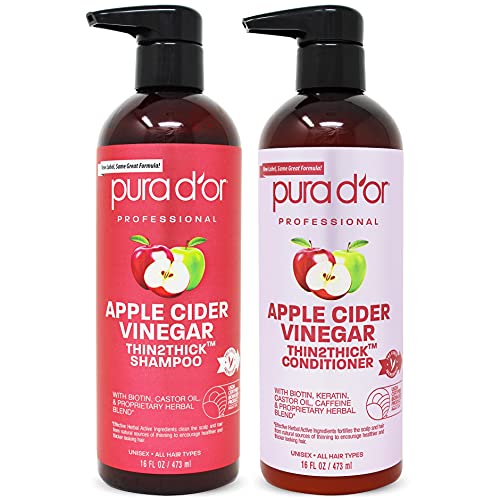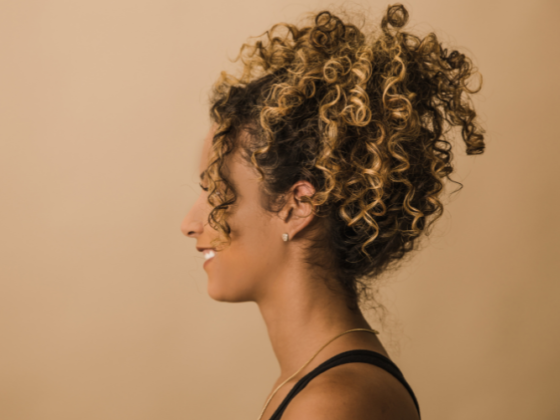You notice that your hair is dropping when you’re oiling it.
What could be the possible reason and does this mean you should stop oiling your hair entirely?
In this article, I’ll cover why you lose hair when you oil it.
And also give you tips on what to do if you’re making any of these mistakes.
Let’s begin.
This post contains affiliate links, meaning I may make a commission at no extra cost to you if you decide to click on a link and purchase something. Click here to read the full disclaimer.
Why do I lose hair when I oil it? 9 Reasons why
1. You’re leaving the oil in your hair for too long

If you leave the oil in your hair for over 2-4 hours or overnight, then the oil does more harm than good.
Since the hair has already finished absorbing the maximum amount of oil it can, the excess oil starts coating the hair strands and attracts dust and dirt.
This dirt along with the oil coats your hair strands and scalp, which will lead to blocked pores and cuticles further leading to infections and dandruff or an itchy scalp.
I have a post here on how long you should be leaving oil in your hair along with some other helpful points on oiling hair.
But overall, please don’t leave any oil in your hair for more than 2 hours.
Heat the oil to allow your hair and scalp to absorb it easily and then wash it all off with a shampoo.
2. You’re using way too much oil

Your hair can only absorb so much oil.
Our hair follicles have only so much space for oil and moisture.
So dipping your hair in oil or coating it excessively such that it runs down your forehead and neck is a bad idea.
Why?
Because you will need to use even more shampoo to wash off the oil.
And shampoo has sulfates and other chemicals that dry the hair and stip it off of moisture.
How do you fix this?
Apply oil to the scalp first and gently massage it. After that, gently coat your hair strands with a little oil in your palms rubbing downwards.
Do it in sections so that you apply oil to all of your hair and scalp.
Do not use a harsh shampoo for washing away the oil.
Instead, use a clarifying shampoo like the Pura D’Or Apple Cider Vinegar shampoo.
This shampoo will only remove the oil and the excess product buildup without stripping away the moisture from your hair – leaving your hair soft and shiny.
3. You’re using the wrong type of oil for your hair

Find out if your hair is low porosity or high porosity.
If you have low-porosity hair, it means that your hair can absorb very little moisture because the cuticles are not entirely open.
This means you should oils with smaller molecules like:
- Grapeseed oil
- Jojoba oil
- Argan Oil
Coconut oil isn’t that great for low-porosity hair.
If you want to use coconut oil which has fatty acids and bigger molecules, make sure you buy fractionated coconut oil like this to help your hair absorb it easily.
Apart from that, low-porosity hair doesn’t require much oiling. Because the cuticles are somewhat closed and not frayed, protein doesn’t escape easily.
Low porosity hair (generally textured hair) generally requires more moisture than protein.
If your hair snaps easily or breaks easily (you can try this with a hair strand), it means your hair has excess protein and needs moisture.
The balance is thrown off. So focus on moisturizing your low-porosity hair.
4. Overoiling your hair

If you oil your hair more than 1-2 times a week, you are going to risk clogging your pores in the scalp and the hair follicles.
Hair does require moisture and protein but not allowing your hair to breathe or continuously oiling your hair every few days is going to lead it to become very brittle and snap easily.
Coconut oil helps your hair retain protein.
If your hair has too much protein, it loses its flexibility and becomes very prone to breakage.
Apart from that, overoiling can lead to your hair attracting dust and dirt – all of this gets sealed in your hair with the oil forming a thick oily, and dirty layer over your hair.
Oil and dirt not washed properly will lead to clogged pores, infections, and dandruff.
The oil and dirt can form a thick layer over the scalp blocking the skin glands and leading to an infection called folliculitis.
5. You’re detangling after oiling

When you oil your hair or moisturize it in any way, your hair cuticles (the outer layer of your hair follicle) opens up to absorb the moisture or oil.
When your hair cuticles open up, your hair becomes very weak and vulnerable to breakage.
So, if you start combing your hair after oiling it, you’ll notice a lot of hair fall and hair breakage.
This can also cause a lot of split ends.
You have to treat your hair with a lot of care after oiling since your hair is very vulnerable at this stage.
Instead of combing after applying oil, comb and detangle your hair gently before applying the oil.
This will help you decrease hair fall.
6. You’re tying your hair in tight hairstyles

When your hair is oiled, your hair cuticles open up.
This makes your hair prone to breakage. It is very prone to damage when it’s oiled.
So tie your hair up in a very loose bun using a satin scrunchy like this.
Don’t use regular hair scrunchies (they will put out a lot of hair) or tie the hair too tightly (as this will cause breakage).
After switching to satin scrunchies, my hair fall decreased dramatically.
7. Massaging your hair/head vigorously after applying oil

When your hair is wet and moisturized, the hair cuticles open up and this makes your hair weak and vulnerable to breakage.
So do not massage your hair and head forcefully – this will lead to a lot of hair fall.
Instead, use your fingers to make light circular motions on your scalp.
Only your scalp needs to be massaged – not your hair.
Avoid massaging and moving your hair too much.
8. Using hot oil instead of warm oil

When you warm the oil before applying it to your hair, you’re helping your hair absorb it easily.
What happens is your pores and cuticles open with warm oil and the oil absorption becomes easier for your scalp and follicles.
What happens if you apply very hot oil to your hair?
If you warm the oil too much that it becomes really hot before applying it to your hair, your hair follicles will get inflamed and this can make the hair strands weak and fall off.
So, warm the oil, but don’t overheat it too much.
9. You’re treating wet hair with a lot of force

As I said before, whenever your hair is wet, oiled, or moisturized, your hair follicles are weak and vulnerable to breakage.
This means you should avoid styling your hair too much.
You need to be very gentle with your hair.
Avoid combing or brushing your hair when it’s wet. This will lead to breakage, split ends, and a lot of hair fall.
Never apply products to your hair when it’s wet.
Let it dry 50% and apply products to damp hair.
If the products aren’t sitting well, mix the product with some water (this is called emulsion) and then use the praying hands method to gently apply the product to your hair.
When detangling hair in the shower, make sure you use a nice conditioner (this one is the best for dry hair) that allows your fingers to slip through so that you can detangle your hair without breaking it.
Do not use a normal towel to dry your hair.
Towels have very rough fibers and this can lead to more hair fall and hair breakage.
Get a microfiber towel like this and gently wrap it around your head. Pat it dry, never rub vigorously.
Remember, your hair follicles are weak when they’re wet. This just leads to a lot of hair fall and breakage.
If you go to sleep with wet hair, ensure that you’re using a satin pillowcase like this.
Normal cotton fibers can be very harsh for wet hair, it moves the hair around a lot and that movement can cause hair breakage.
Conclusion
If after implementing all these methods, you still notice that you’re having a lot of hair fall, please consult a doctor to find out whether there is an internal factor causing this.
















